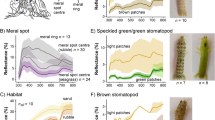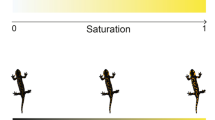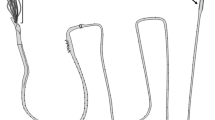Abstract
THE spicule-less sponge, Oscarella lobularis, is an interesting form found on our shores and elsewhere, and presents a wide range of colour variation. Topsent (Arch. de Zool. Exp. et Gén. 3, iii., 1895) has recorded that Oscarella when found exposed fully to light is deep red, as when growing on the stem of the weed Cystoseira or on the sides of rocks, and brownish or even greenish-yellow when growing in dark situations, as on the under side of stones. At Plymouth, a similar range of colour variation is found, while colonies which are overgrowing the under sides of stones and extending over the edges show a development of red colour where the sponge is exposed to direct light.
This is a preview of subscription content, access via your institution
Access options
Subscribe to this journal
Receive 51 print issues and online access
$199.00 per year
only $3.90 per issue
Buy this article
- Purchase on Springer Link
- Instant access to full article PDF
Prices may be subject to local taxes which are calculated during checkout
Similar content being viewed by others
Author information
Authors and Affiliations
Rights and permissions
About this article
Cite this article
ORTON, J. An Experimental Effect of Light on the Sponge, Oscarella. Nature 113, 924–925 (1924). https://doi.org/10.1038/113924b0
Issue Date:
DOI: https://doi.org/10.1038/113924b0
Comments
By submitting a comment you agree to abide by our Terms and Community Guidelines. If you find something abusive or that does not comply with our terms or guidelines please flag it as inappropriate.



